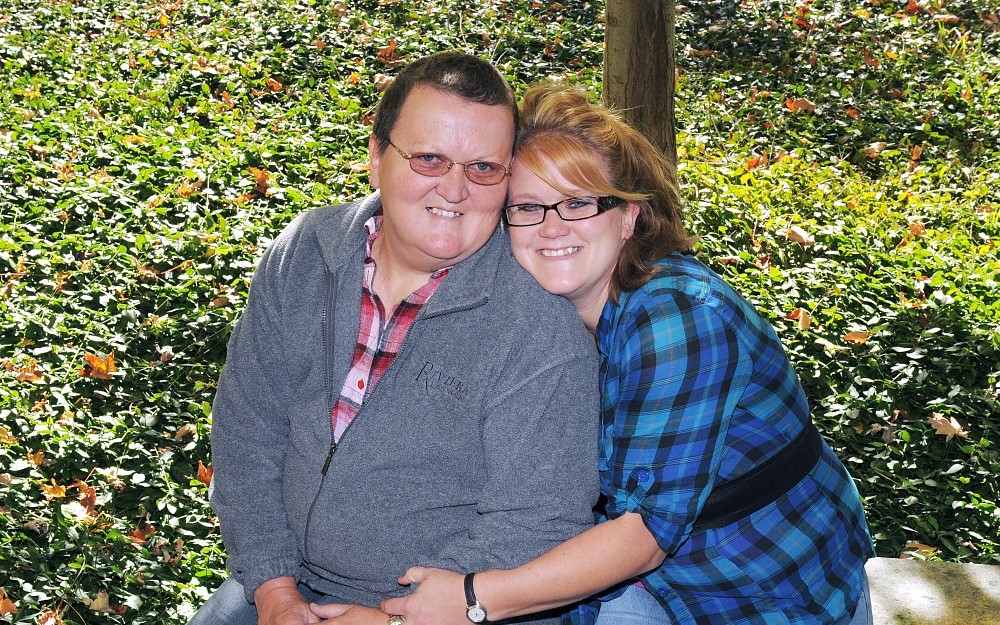An unrelated emergency trip to UC Health University Hospital the day after Christmas in 2010 resulted in a surprising diagnosis for Buford, Ohio, resident Gloria Caldwell: stage 3 breast cancer.
Caldwells daughter, Alicia Shaffer, was helping her get dressed when she noticed her mothers breast was visibly deformed.
"I confronted her about it immediately and asked How long has it been like that? She told me it has been like that for the last two years and admitted there was a knot in her breast since my dad passed away from cancer seven years prior, recalls Shaffer.
Shaffer talked to her mothers doctors and scheduled a mammogram the next day at UC Health University Hospitals diagnostic breast imaging center. She was soon referred to surgical oncologist Kelly McLean, MD, to talk about options for removing the cancer. Thats when they also met Gail Johnson, who serves as the patient nurse navigator for UC Healths breast cancer program.
Established in April 2008, the breast health navigator program is intended to connect patients with the resources they need to complete standard of care treatment and recover both physically and mentally.
All new patient referrals are funneled through Johnson and the breast health navigator program. This allows her to speak to every patient before they begin treatment to explain what to expect, answer treatment questions and provide information about general breast health.
"Our primary goal is to ensure that at-risk patients dont fall through the cracks and fail to receive standard of care treatment, explains
Elizabeth Shaughnessy, MD, PhD, a UC Health surgical oncologist and associate professor at the UC College of Medicine.
"People dont retain a lot of information around the time of diagnosis, so the breast navigator is there to guide the patient through the process, adds
McLean, who performed a double mastectomy on Caldwell in August 2011 and radical lymph node dissection in September 2011. Thankfully, Caldwell had a slow growing form of breast cancer and it had not spread to other parts of the body.
Shaffer says having Johnson there to guide them through the whirlwind of treatment decisions helped them stay focused on the end goal.
"Gail was always thereI tell her she is part of the family now, says Shaffer, who served as her mothers primary caregiver during treatment while also providing support to her brother and going to nursing school. "We had questions all the time; I think we called every day for three months. She helped us understand the disease and the best way to deal with it.
Johnson also facilitated conversations with financial counseling and offered resource ideas for everything from wigs to support groups.
"It was clear we werent alone in this fightthe entire breast cancer team was behind us, and Gail specifically helped me keep my mind on the good things, not just the bad, and focus on taking it one day at a time, adds Shaffer.
Caldwell is doing well now and begins the last leg of her breast cancer treatmentradiation therapywith
Ruth Lavigne, MD, this fall.
For more information on UC Healths breast cancer team, visit
cancer.uc.edu.



